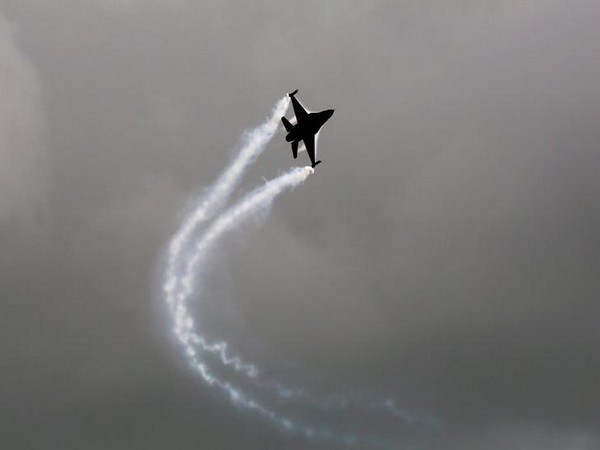US should be cautious, hesitant in delivering more military support to Pakistan: Report
By fulfilling Pakistan's wishes on the F-16, the Biden administration may be hoping it will help shore up the fragile governing coalition from outside interference. However, it is the machinations of Pakistan's military that remain constant and will continue to shape what transpires within the country.

- Country:
- United States
The US should be cautious and hesitant in delivering more military support to Pakistan, such as the F-16s, where there is no guarantee that they will be used competently. Dr Sajjan M Gohel, the international security director at the Asia-Pacific Foundation think-tank and Marcus Andreopoulos, a senior research fellow at the Asia-Pacific Foundation, writing in War On The Rocks (WOTR) said that by fulfilling Pakistan's wishes on the F-16, the Biden administration may be hoping it will help shore up the fragile governing coalition from outside interference. However, it is the machinations of Pakistan's military that remain constant and will continue to shape what transpires within the country.
The Biden administration authorized the sale of military equipment worth USD 450 million to Pakistan to enhance the air-to-ground capabilities of the country's current stock of F-16 fighter aircraft. This most recent sale is the latest chapter in a decades-long back and forth between Washington and Islamabad, in which bilateral relations have fluctuated erratically, said Gohel and Andreopoulos.
The contorted situation of the F-16 raises a perennial yet fundamental dilemma on whether Washington can ever really achieve its objectives with Pakistan regarding cooperation in preventing Afghanistan from becoming a safe haven for terrorist groups, curtailing nuclear proliferation, ending hostilities with India, and containing China's expanding clout in South Asia. The answers will likely turn out to be disappointing, as they have in the past. In part, this is because multiple US administrations pass laws with the intention of taking a principled stand in holding Pakistan accountable for its ties to terrorism or nuclear proliferation but then subsequently seek to find workarounds when there is an impending strategic security concern. Pakistan has understood this all too well, reported WOTR.
For Pakistan's establishment, statecraft of strategic depth outweighs the economic and social challenges that continue to engulf the country and which in turn heighten insecurity in the region. The security ramifications of how the United States handles the F-16 matter carry enormous geopolitical significance, ranging from nuclear conflict, conventional warfare, counter-terrorism, and containing Chinese influence, said Gohel and Andreopoulos.
The history of US negotiations with Pakistan illustrates that the temporary, tactical, and transactional nature of the relationship has enabled Pakistan to pursue its adversarial military doctrine of strategic depth in Afghanistan to hedge against India, in which the F-16s became a key tool, while also furthering the ambitions of a nuclear weapons programme. F-16 refurbishments are not going to resolve Pakistan's crippling economic and humanitarian crisis and may instead contribute to the cycle of military opaqueness and intransigence over the stable democratic civilian rule, reported WOTR.
Washington should stop using F-16s to try and leverage security and non-proliferation commitments from Pakistan. As Pakistan is mired in political, economic, and environmental instability, the risk is that providing Islamabad with more weapons will be counterproductive because they exacerbate regional tensions, said Gohel and Andreopoulos. Instead, Washington should recognize that these sales and upgrades prop up actors in the country that sometimes work against American interests, all but ensuring that clashes over the sale of this jet -- and other American hardware -- will continue long into the future.
Moreover, the nuclear risk is a by-product of Pakistan's instability, which has occurred directly due to the troubling relationship its military sustains with violent extremists. Pakistan's commitment to preserve its nuclear arsenal is also configured to level the defence battlefield with India. Ironically, instead of being a conventional deterrent, the F-16 could instead be used to carry nuclear warheads.
Expressing apprehensions over the Biden administration's decision to upgrade Pakistan's F-16 fleet, India's External Affairs Minister S Jaishankar implied that the primary use of the aircraft would be to wage war with India. Jaishankar's concerns are not without merit. Tensions between Pakistan and India ignited in February 2019, after the Jaish-e-Mohammed terrorist group carried out a suicide bombing in Jammu and Kashmir that killed 40 Indian security personnel.
Pakistan had deployed F-16s against India as opposed to the Chinese-built JF-17 Thunder that they initially claimed to have used, violating the terms of sale from the United States. (ANI)
(This story has not been edited by Devdiscourse staff and is auto-generated from a syndicated feed.)
ALSO READ
We will immediately restore full statehood to Jammu and Kashmir: Cong manifesto.
Nine more candidates file nominations from Jammu LS seat, total contestants 26
IIM Jammu's first batch of MBA Hospital Administration and Healthcare Management achieves 100 per cent placements
3 criminals slapped with PSA in Jammu, Samba
Nomination of three candidates rejected, 23 found valid for Jammu Lok Sabha seat










